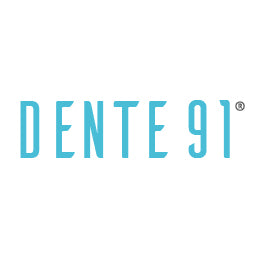From Plants to Personalization - Health & Nutrition Trends for 2024
In 2024, health and nutrition trends are expected to continue evolving, with a heightened focus on holistic well-being, sustainability, and personalized nutrition. Protein, being a fundamental macronutrient, is likely to remain a central focus in dietary discussions due to its crucial role in various bodily functions, including muscle repair, immune function, and hormone regulation.
Here are some potential trends related to protein and overall health for 2024:
Plant-Based Proteins: The shift towards plant-based diets is expected to continue, driven by concerns about environmental sustainability, animal welfare, and health benefits. Consumers are increasingly turning to plant-based protein sources such as legumes, tofu, tempeh, seitan, quinoa, and hemp seeds. Food manufacturers are responding by offering a wider variety of plant-based protein products, including meat alternatives, dairy-free protein powders, and snacks.
Alternative Protein Sources: In addition to traditional plant-based proteins, novel protein sources are emerging, including tofu, tempeh and seitan, seeds, legumes, beans and nuts, and others such as algae and insects.1 These alternative protein sources offer innovative solutions to meet the growing global demand for protein while minimizing environmental impact and addressing concerns about animal agriculture.
Protein Quality and Digestibility: Beyond the quantity of protein consumed, attention is shifting towards the quality and digestibility of protein sources. Foods containing complete proteins with all essential amino acids in sufficient quantities are gaining popularity. Additionally, factors such as protein bioavailability and absorption rates are becoming more significant considerations for consumers looking to optimize their protein intake.
Personalized Protein Nutrition: As advancements in technology and personalized medicine continue, personalized nutrition approaches are gaining traction. Individuals are seeking personalized recommendations for protein intake based on factors such as age, gender, activity level, metabolic profile, and health goals. Companies and health professionals are leveraging data analytics, genetic testing, and wearable devices to provide tailored dietary recommendations that optimize protein consumption and overall nutritional balance.
Protein Fortification: Fortifying foods with protein is becoming increasingly common as consumers seek convenient ways to boost their protein intake. From protein-fortified snacks and beverages to protein-enhanced baked goods and cereals, fortified products are catering to the growing demand for convenient, on-the-go nutrition options.
Sustainable Protein Production: With concerns about the environmental impact of conventional protein sources, sustainable protein production methods such as vertical farming, aquaculture, and insect farming are gaining attention. These methods require fewer resources and generate lower greenhouse gas emissions compared to traditional livestock farming, making them more environmentally sustainable options for protein production.
Overall, protein will continue to play a central role in health and nutrition trends in 2024, with a focus on diverse, sustainable, and personalized approaches to protein consumption that promote overall well-being and environmental stewardship.
Whey91 Protein Bars offer a delicious and convenient source of protein, ideal for daily consumption to support active lifestyle and muscle recovery. Packed with high-quality whey protein, they provide essential amino acids for sustained energy and strength. Additionally, Whey91 Protein Bars contain immunity-boosting Lactoferrin, enhancing overall wellness. Incorporate Whey91 Protein Bars into your daily routine for a tasty and nourishing way to fuel your body and support optimal health.
Please note: Content provided in this blog is intended to highlight protein and overall nutrition trends for 2024. It is for informational purpose only and should not be considered a substitute for professional advice. Always consult with a qualified healthcare or nutrition professional for personalized guidance regarding your dietary and nutritional needs.













